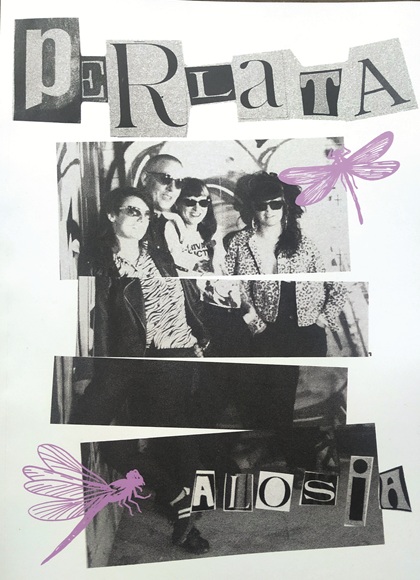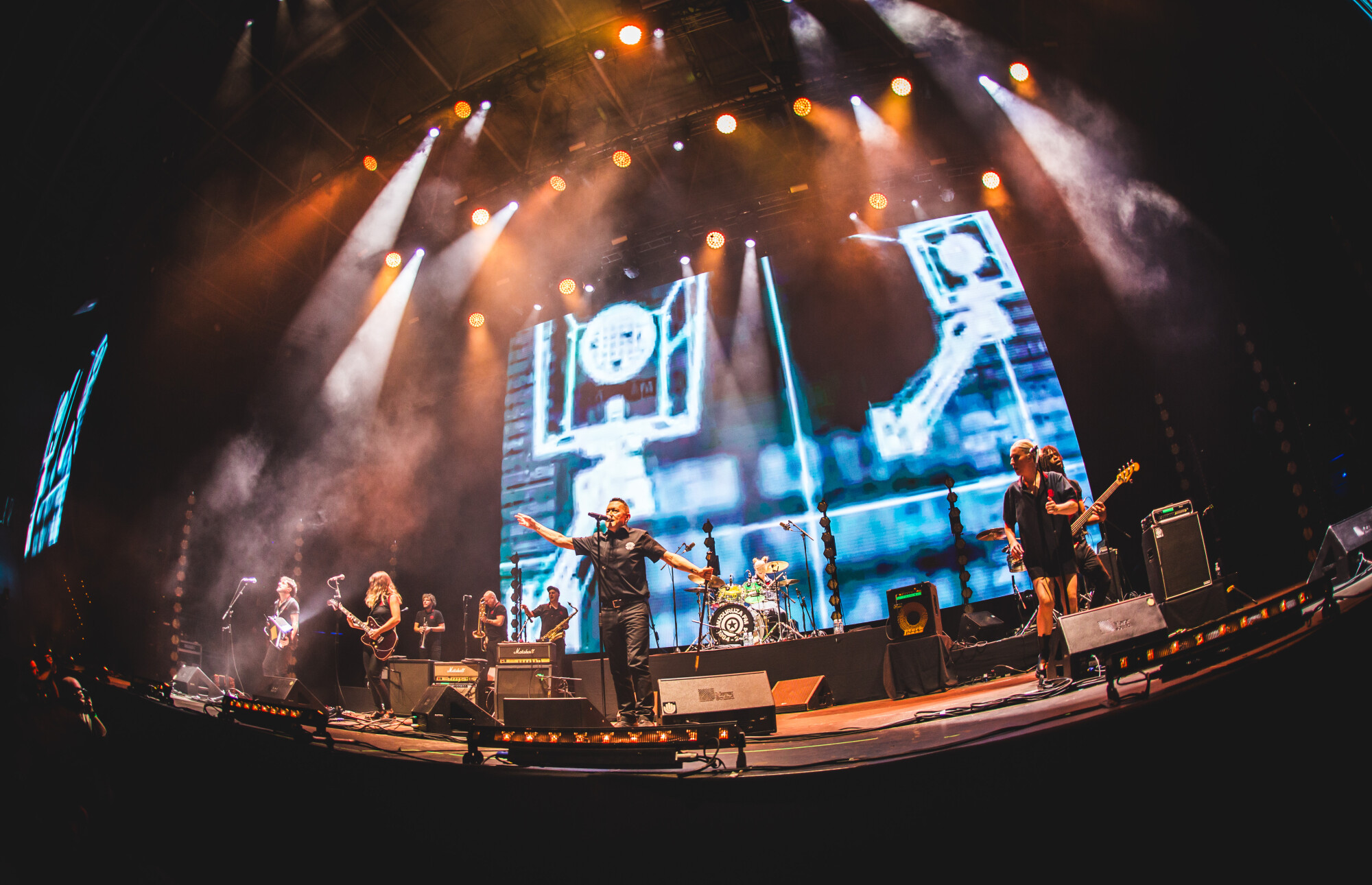"Young people are standing and moving in the face of a raw reality"
- The Oñatiarra singer-songwriter Aiert Alberdi builds and demands different resistances both on stage and in daily life: young, dissident, Basque, working class and popular… Music and feminism are the tools to combat patriarchal violence.

“For the girls of the class, for the dresses of the neighborhood
By the detainee of the people, by a language,
That is why I am today.
If I am for you”
For you, Aiert Alberdi
Aiert Alberdi (Oñati, 2006) was 13 years old in the television program La Voz Kids and after five years he has sung mostly on the gaztetxe boards. He has one song on the platforms, Omen ala behar, and he has presented us with three other songs in the Electric Blue: he talks about the people, about the resistance, about the fraternity of the girls of the class, about everything his mother gave him… The music started in school at the age of four. Practice became a habit, a need for passion and passion.
He has not been nervous in the public interview in Bira Kulturgunea. The experience of the Antena 3 plató has helped him to be calm before the public. It is also pleased that it has the first opportunity to make its political speech known. He is a student of Sociology and Political Science who likes to reflect on power systems and social struggles. We knew he had a good voice and confirmed that he has a lot to say.
Does it make you lazy to talk about La Voz kids?
(Laughter) No, I find it interesting. The desire to play a 13-year-old boy led me to the Antena 3 plateau. It was a push to sign up for casting and I ended up in Madrid.
What did the experience give you?
Quite a few positive things. On the one hand, singing in front of people gives you the tabled experience. On the other hand, it has allowed me to know inside the world of television and the media, including social networks. It's also interesting that all of this lives with the child.
My prejudice is that many broken toys leave these children’s shows, suffer the pressure of parents’ expectations…
There's everything. It is true that a pattern is repeated, that of the child who, at the age of nine, has gone through four programmes. But, like me, many children go with the attitude of playing, and their parents have no special ambition (at least explicitly).
In La Voz Kids' presentation, they said that from punk you only have crest, because your symbol was tenderness. Is that the case today?
I would not say that my main feature is tenderness, but contrast. I convey tenderness, but also firmness. The development of my punk aesthetic has had a strategic starting point: to use it as a political tool to generate the greatest possible effects.
In its aesthetic it is evident the dissent of gender…
I developed it slowly in adolescence, quite organically, although there were also elections. I think it is important to politicise these decisions. Because it is common to hear someone “I am like this, it comes to me by nature.” I do not share that our identity is inevitably built from the outside to the inside. Feminism has taught us that the body is our weapon and our destiny.
Where does the feminist perspective come from?
By necessity. He needed it for survival as an instrument to understand and respond to violence. On the contrary, in this case there has also been a decision apart from the need: I have politicised myself, I have politicised everything. I try to militate in feminism, in my life and through my music. I understand feminism as a class struggle. Gender is the axis of the patriarchal system and, consequently, I believe that the abolition of gender categories is the milestone of feminism.
How does feminism fit into your project?
I try to uncover dissent on stage. Some letters are explicit, others are not, but the subject of my music is always out of hegemony.
“It seems to me a simplistic and limited look to study only the letters to resolve whether the work of a musician is political or not”
Olatz Salvador and Izaro Andrés lamented to Pikaran that people have told them that their letters are not political and do not match. What do you think?
On the one hand, I find it simplistic and limited to study only the letters to resolve whether a musician's work is political or not. I think the subject does something political, the body he creates will bring his personality and his vision. Consequently, I do believe that Izaro and Olatz Salvador make policy. In any case, I would say that there is no music that has no politics.
You talk about the abolition of gender and I am surprised that I associate this concept with the radical transphobic feminism. Should we assimilate it?
It is true that part of the current radical feminism is transfobo and has become aware of that discourse. We have to remember that patriarchy is a system that oppresses us all, that punishes women who are blind and trans people. Rather than joining radical feminism, my intention is to overcome liberal feminism, which we all have very interiorized: the framework of equality between men and women. We must be aware that as long as gender discrimination exists, the crack power will not disappear.
We have long published an article by sociologist Jokin Azpiazu entitled “Masculinities: transform, revolutionize or reject?” Do you think it feasible to ask cis normative men to reject masculinity?
Yes, we have to ask them and demand them! (Laughter). Understanding that this is a process that is not going to happen since today because the whole system is so organized and structured. From materialistic feminism that understands men and women as political classes, I do believe that a person who is part of that kind of man can choose to betray masculinity to fight for the abolition of gender.
And how is virility betrayed? Give some tips!
In eight thousand ways: how to build relationships, taking care of others, sometimes saying you don’t know how to answer a specific question… There are a lot of little practices to take the first step. However, the reforms of virility are all well and good to go down the road, but they cannot be an objective. If we only stay in small changes, we will stay in the skin. The challenge is to completely change the outlook for life.

Aiert Alberdi. / Photo: Teresa Villaverde / Pikara Magazine. CC BY, S.A.
You have moved from Oñati to Bilbao to study at university. It is deeply rooted in the imagination to link the small town with social control and rigid gender models, and to represent freedom in the city. What do you think?
I disagree. I think it's a false and simplistic dichotomy to say that small towns are infertile and that we can find utopia in cities. Of course, in cities there is more diversity because there are more people, but I would say that violence takes different forms. In peoples we all know each other, there are more spaces of trust, and that makes violence more visible, more explicit, but it also occurs in cities. Moreover, I would say that dissidents use the same strategy to survive, whether in towns or cities: to live in bubbles, with thick walls, to move away from the hegemonic reality.
Let's talk about class consciousness now. How did he cross you?
I'm part of the working class from a young age. In my family, I've always been educated from a class perspective. Consequently, I do not understand feminism if it is not materialistic. The reality we live in is raw and feminism must be a tool to respond to it.
And what does it mean to keep class perspective in music in mind, given that elitism is a universe that is closely linked to a certain success?
To begin with, I like to talk about the people in my songs, understood as working class. On the other hand, I think it is important to review the concept of success. We've been told that it has to be known to live from music; the key is not so much economic status, but social status. I am not clear. To some extent it would be good to break with this bourgeois mentality, but we have to recognize that today it is very difficult to live on an art project without achieving fame. It is true that the musical world is classical and behind there is a capitalist logic (like the whole system is capitalist). Guay is to be part of self-managed spaces, to make her cultural offer and give up platforms like Spotify, but we cannot deny that we also have to use capitalist devices to survive.
Between the worlds of Mainstream vs. Mainstream counterculture, what is your place, taking into account that you started in Antena 3, but that what plays most is in cheese stores?
In the context of Euskal Herria, the separation between mainstream and counterculture is more fluid than in other contexts. Anyway, I find it more interesting to think about how you are, what you do in it. The place I like is resistance, and I think that's the attitude that can exist in both worlds. That is to say, I do not share with punishing those in the mainstream, I believe that from there you can also position and counterpolite. At the same time, I believe it is essential to promote and strengthen the counterculture. There I see myself.
Let's talk about youth now. Do you struggle to defend your project, feel serious?
Since the experience of Antena 3, I have clearly seen the general tendency to infantilization of young people, and more explicit in the scenario, especially if you are a woman or dissident. We therefore rethink each step by eight. I just have one song on the street. As young people, we need the hand of an adult because opening the doors is difficult beyond gaztetxe.
However, his path is very lonely. Do you have a clear choice?
I have always been clear that my project would be personal, with my name, but at the same time I constantly doubt. Who knows, maybe within three months I'm surrounded by musicians or creators, at least live. As for production, at the moment I would like to continue alone, I want to live how it is to progress independently in music.
I was surprised to see that you use social media very little. Is it also a political option?
No. The problem is that I find it hard to distinguish between person and musician in the networks, how I don’t part it in my life… At a certain point I tried to professionalize the profile, but it caused me a distance; when Instagram becomes a business window you lose pleasure and adhesion. So lately, I get very little content, which I upload is personal or creative.
You've started experimenting with electronics on your own. Merina Gris, Neomas, Zetas, J Martina… The trend is evident in the Basque landscape. What attracts you?
It is true that both in the Basque and international landscape we are in a great wave of electronics. Digitalization has permeated everything, also music. Lockdown also probably influenced because a lot of people started experimenting at home. Electronics allow you to play, fuse, explore hybridization. It was an impulse in the moment, but reflecting upon me, I realize that what interests me is to break with purity.
Those of generation Z have to hear many aliases: crystal generation, porn generation, lost generation… What would you say about young people’s resistances?
On the one hand, I want to make it clear that young people are standing in front of a raw and moving reality. What do we have a thin skin? Well, we want to have it, that also has to do with breaking with hegemonic masculinity. We complain because we will not comfort ourselves with the minimum, because we do not want to experience any kind of violence.
Another usual criticism is that you are more macho. It's silly, right?
It's nonsense, yes. But together with the new generations, violence takes new forms. Moreover, I believe that resistance to the patriarchal system has increased. I see a lot of movement among young people.
“We should change the name to self-demand: it is a structural requirement, it is a requirement of the system”
We've talked a lot about mental health and destructive self-demands in Electric Blue. The next quote is Olatz Salvador: “I don’t always feel like smiling in public, sometimes I break and have to say it”. Inés Osinaga has claimed that “we appropriate mediocrity”. How do you experience the pressure on the board?
We should change the name to self-demand: it is a structural requirement, for the system. Capitalist logic has become so integrated into our bodies that we believe it is ours, but that interior is created from outside. It's hard to be on the board being young and dissident and competing with that excellence. I see two possible strategies: embracing mediocrity, or embracing excellence strategically and, with the power it has given it, embracing mediocrity to drive transformation. I do not know if I have explained myself!
Finally, another classic of Electric Blue, throwing away an idea from Ainara LeGardon: that women and gender dissidents do not fight for visibility, but for authority sharing. Could you tell us a referent, a sister or a teacher?
Nerea Loron, La Furia, has given me my hand. He met me in a competition at Alto Deba and ran to find out what he wanted to do. I want anything, I know I can count on it. In addition, I would say that those who really support me are my friends and my family. Faced with this infantilization and with thousands of violence, I am still making the way thanks to them.
Party and recreation. Oral History of Rock Radical Vasco
Javier 'Jerry' Corral
Books, 2025
------------------------------------------------
Javier Corral ‘Jerry’ was a student of the first Journalism Promotion of the UPV, along with many other well-known names who have... [+]
All
WHEN: January 18th.
IN WHICH: Jimmy Jazz of Vitoria-Gasteiz.
----------------------------------------------
I have a question in my mind lately: how much do things change in 30 years? Yes, reader, you guessed it: I’ve just turned three decades old. It will be a... [+]
Itoiz, udako sesioak filma estreinatu dute zinema aretoetan. Juan Carlos Perez taldekidearen hitz eta doinuak biltzen ditu Larraitz Zuazo, Zuri Goikoetxea eta Ainhoa Andrakaren filmak. Haiekin mintzatu gara Metropoli Foralean.
Sawdust
Olaia Inziarte
Panda, 2024
-------------------------------------------
Fourteen songs written during the Depression. Olaia Inziarte presented it in the first late night in Basque that can’t be mentioned now. The bru-ta-la piece Sawdust opens the disc. A jazz... [+]
Since Benito Lertxundi, who told us that he will leave the scenes for ever, we have been there for several weeks, and since then many of us have felt orphans in one way or another, with a sense of loss or abandonment, sad. To Iruindarro, at least, we will remain forever honored... [+]
Nafarroa Arenan Mitoaroa ikusten izandako lagun batek “telurikotzat” jo zuen entzun-ikusi-sentitutakoa. Niri ere hala iruditu zitzaidan telebista medio etxetik hauteman nuena.
Pentsa daiteke Mitoaroak piztutako grinak eta atxikimenduak proiektuaren ikusgarritasuna... [+]
Basque Country Herriko Gazte Orkestra. Winter Meeting
Director: Iker Sánchez.
Narrator: Kepa Errasti.
Programme: Works by Britt and Beethoven.
Place: Victoria Eugenia Theatre, Donostia.
Day: 2 January.
-----------------------------------------------
After 27 years, we... [+]
Chulería, fuck!
WHEN: 5 January.
WHERE: At the Kafe Antzokia in Bilbao.
----------------------------------------------------
As I filled the room, looking down behind the railing above the theater, I've been playing to see if I find someone younger than me before the... [+]
The New Year’s Morning is the title of a roundness created by Joxe Ansorena, brother of our grandfather Isidro, for the Txistularis to hit the streets during the New Year’s Morning. In the air of that melody, we were picking up the wrecks of the night, like the garbage... [+]
Beyoncé at the break of an American football game in Houston, Texas. The American singer has come to the center of the stadium in a cowboy suit that she's had access to. The hat covers the nice, the legs the boots long to the knees. The scarce white suit shows her thighs and... [+]
Alosia
Perlata
Autoproduction, 2024
----------------------------------------------------
The Arrasate Perlata group has published a new work. He has several records behind him and his latest work is punk, Oi! And it was a documentary in tribute to the unrepeatable... [+]












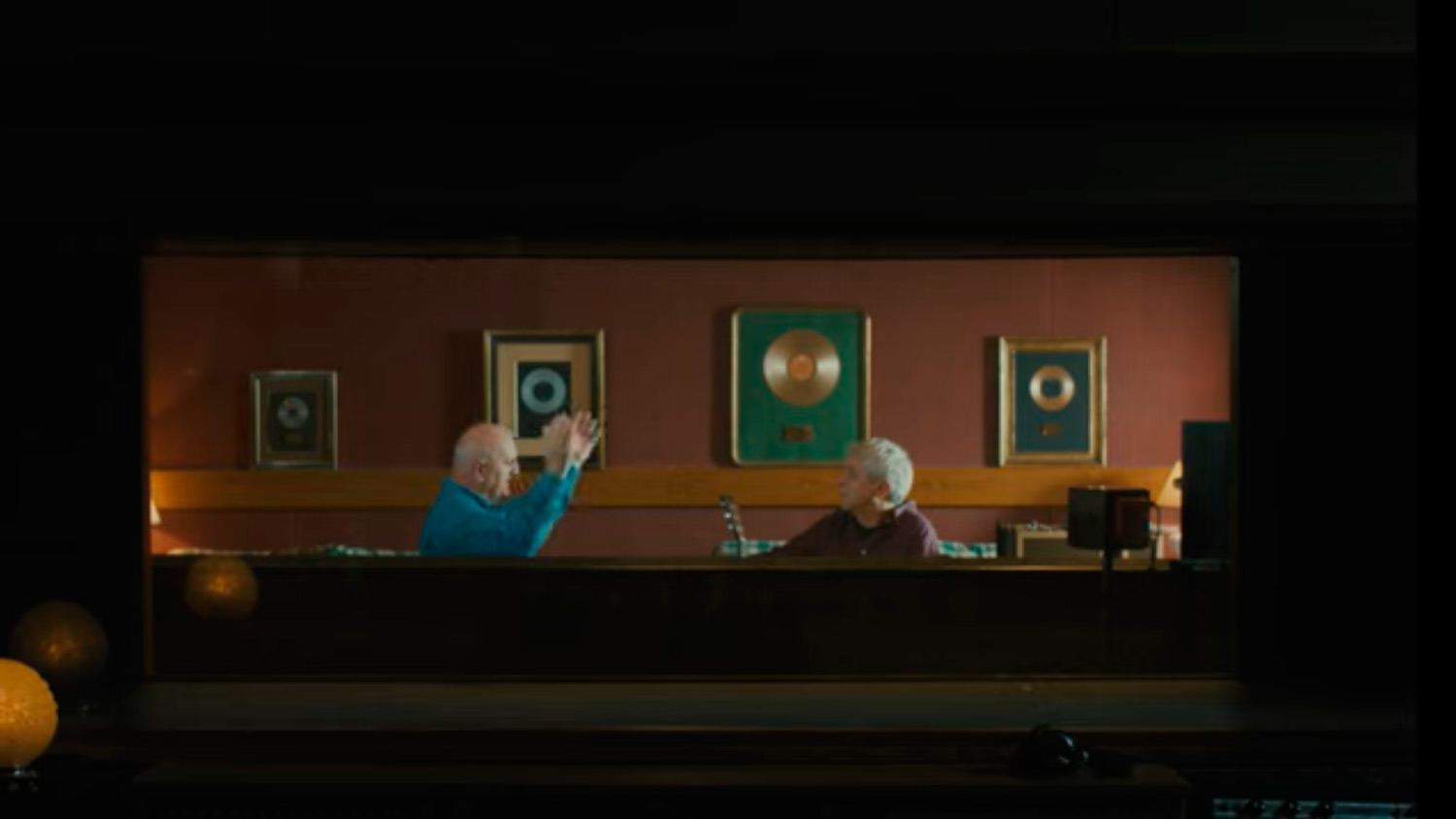



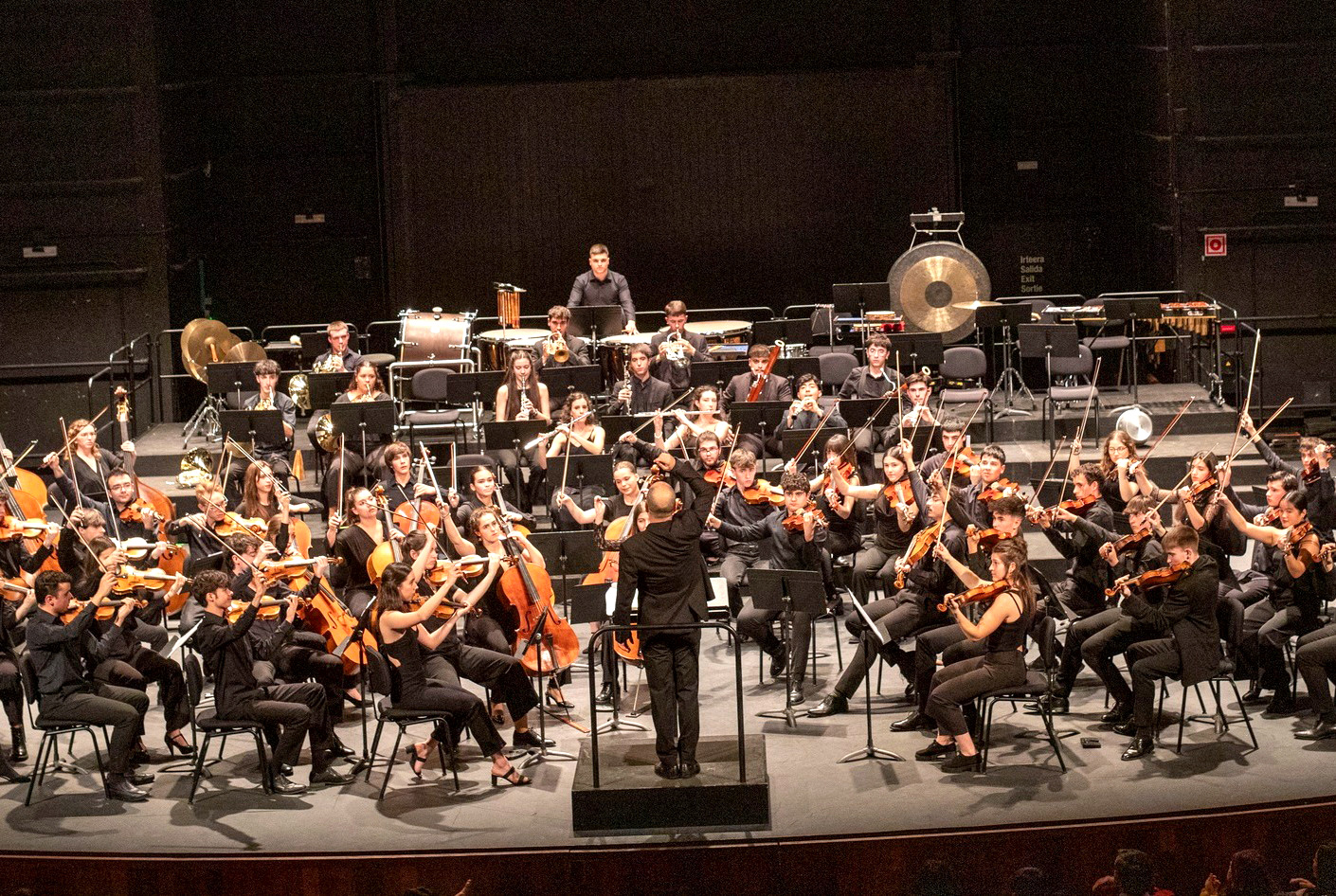
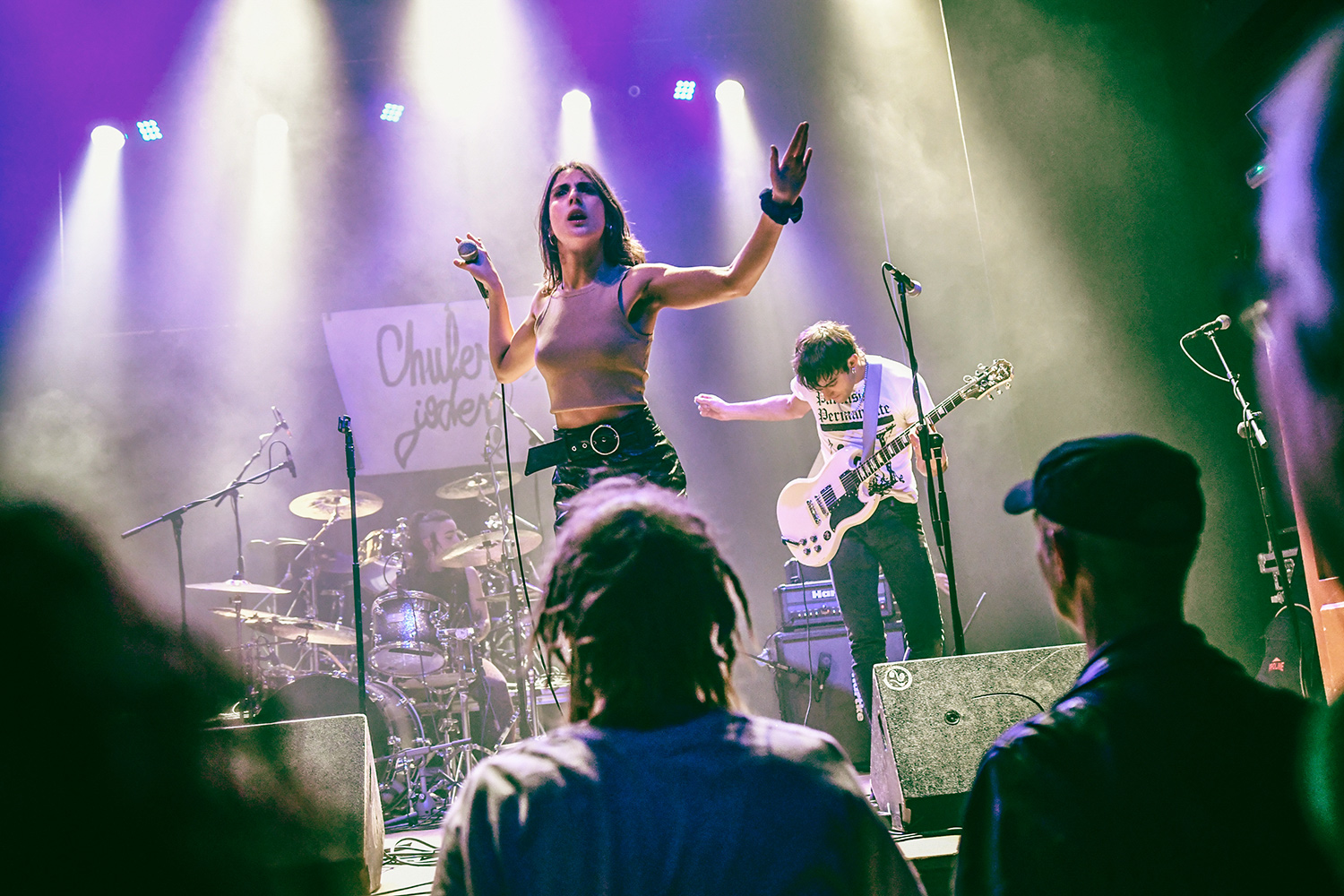


.jpg)
